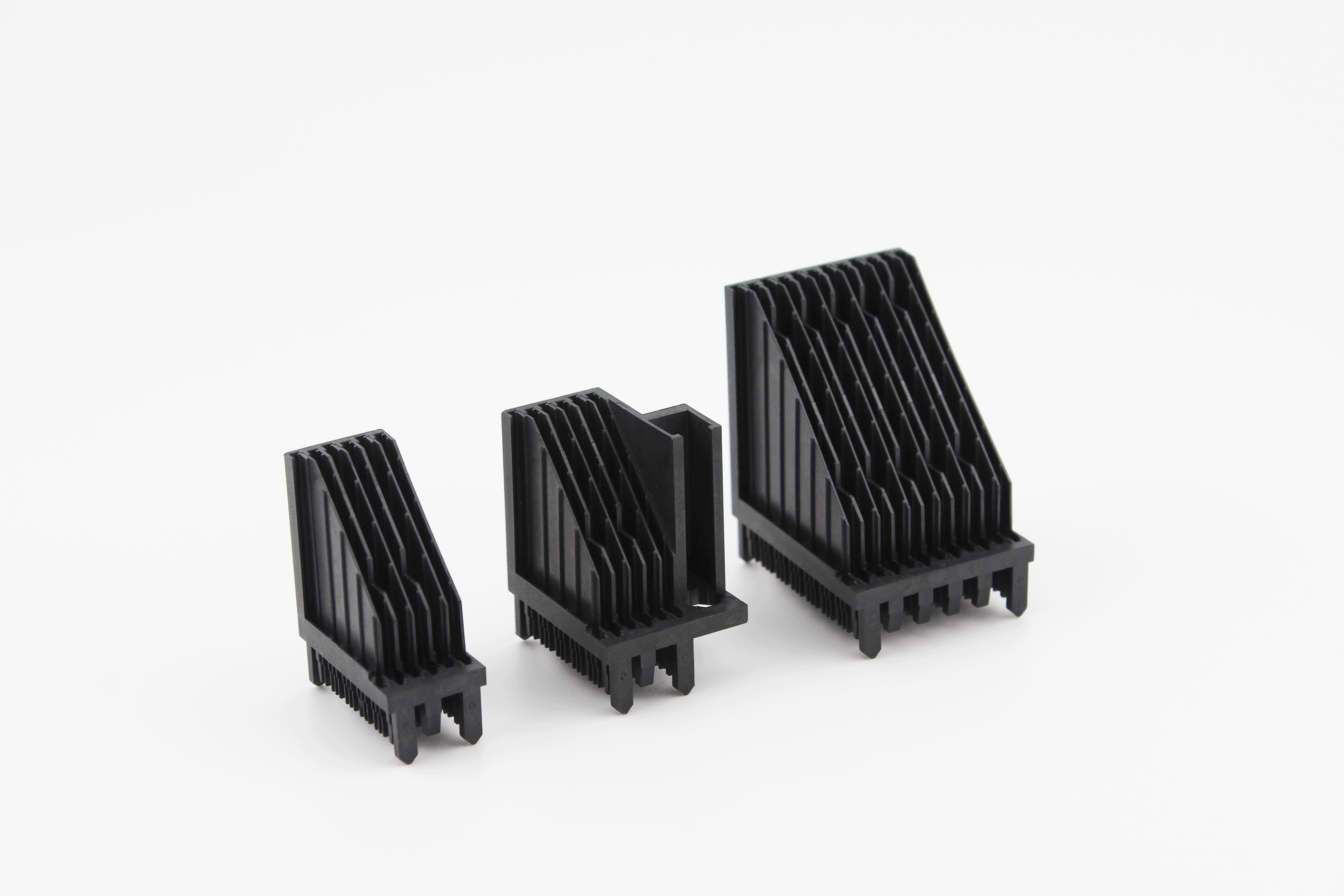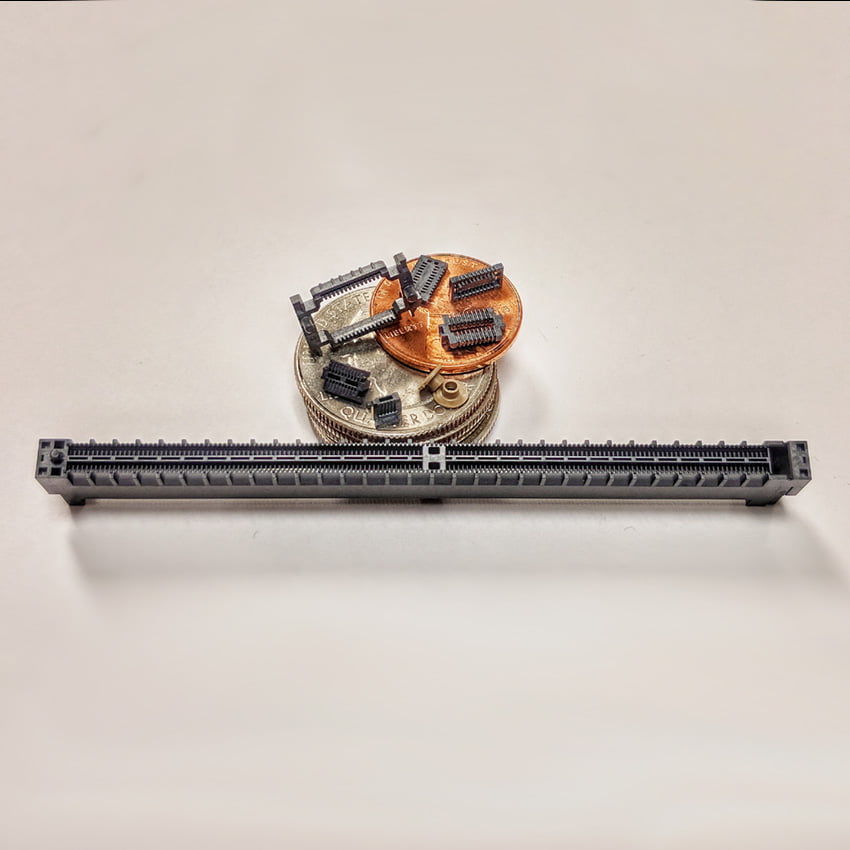Matrix Tool has a very wide and deep experience molding thin wall, high precision electrical connectors and micro pitch high speed data transfer connectors. Many of these specialized plastic products utilize laminate style tooling that can be configured into dozens of unique part numbers.
High Precision & Thin Wall Injection Molding
Matrix Tool’s expertise in molding the intricate, tight tolerance parts we need sets them apart.
How Thin? Extremely Thin!
When we say thin wall molding, we manufacture parts with wall sections that are .003”. This takes incredibly accurate tooling, highly specialized injection molding machines and a fundamentally strong processing team. We have particularly strong processing capabilities using glass and mineral filled engineering grade Nylons, PBT and Liquid Crystal Polymers (LCP.)
Need For Speed
Molding incredibly thin walls requires filling the mold fast, very fast. Matrix has injection molding machines capable of injecting plastic in single digit micro seconds with 13-15 G’s of acceleration. While filling the mold fast, if you're not fundamentally sound, it's easy to damage the mold. You have to stop on a dime right at the moment the mold is filled and then very highly and accurately control how much plastic you compress into the mold. How much you pack the part out, and that last bit of filling and compressing, the packing—that portion is absolutely critical. If mistakes are made in processing, or the wrong equipment is used, you can very easily cause thousands of dollars of damage to the tooling.
Technology Tools of Our Trade
This is where our use of RJG technology really shines. The in-cavity pressure transducers give us a full graph, a full output of all the data of what's going on inside the mold at the critical point of transfer and fill. There are slopes and curves we monitor that truly paint a very accurate picture. We are able to achieve a much higher control over the entire injection molding process. We have Master Molders on site who have gone through RJG to get certified as in-house trainers. All our mold processors, molding technicians and Quality department staff go through an RJG training course. We're very experienced with this processing technology—not only to use it in-house, but also to guide our customers in its proper use and implementation as well.
Breaking the Mold
Matrix has clearly adopted the use of the latest equipment and technology, but it doesn’t stop there. We’ve challenged ourselves to unlock the conventional plastics technology paradigm. We take a thorough and a systematic approach to mold design and layout, runner and gate sizes, cavity spacing, total flow lengths, part ejection, inspection and part handling post-molding. With this approach we are often able to eliminate waste without the added cost of a hot sprue and hot runner. Bigger and more complex isn’t better, better is better.
Overall, Matrix is a world class supplier with excellent technical support, technology and business processes. Matrix is a tremendous partner to have in our supply chain.
The LCP Difference
Matrix Tool is truly an expert at LCP injection molding—it is the number one material we process. Traditionally, there are two broad categories of thermoplastic and thermoset resins. Within thermoplastic resins there are amorphous and semi-crystalline materials. Those are the two main categories of plastic materials. But LCP is its own unique material. It is semi-crystalline, but it does not behave like all other semi-crystalline materials. LCP is the number one material used in Telecommunications and Connector industries for board to board connectors on computers, hard drives, anything that transmits high speed data.
Knowledge Is Everything
With LCP resin you don’t have the ability to process around molding issues like you can with other materials. With other engineering grade materials you can pack the mold out a little bit more to get a dimension a little bit bigger, or run a little faster cycle time to make it shrink a little bit more. But with LCP you don't have those options. LCP freezes almost instantaneously. LCP truly gives you the output of what you put into the mold. It fills thin walls better than just about any other material, while also being an engineering grade material. We can fill walls that are 0.003”—smaller than the thickness of a human hair!
If you have complex, thin walled part that you need produced or if you have an existing part that other molders are struggling to produce, Contact Us. When expertise matters, you need Matrix!


